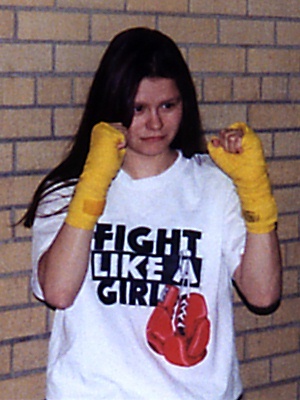All Nonfiction
- Bullying
- Books
- Academic
- Author Interviews
- Celebrity interviews
- College Articles
- College Essays
- Educator of the Year
- Heroes
- Interviews
- Memoir
- Personal Experience
- Sports
- Travel & Culture
All Opinions
- Bullying
- Current Events / Politics
- Discrimination
- Drugs / Alcohol / Smoking
- Entertainment / Celebrities
- Environment
- Love / Relationships
- Movies / Music / TV
- Pop Culture / Trends
- School / College
- Social Issues / Civics
- Spirituality / Religion
- Sports / Hobbies
All Hot Topics
- Bullying
- Community Service
- Environment
- Health
- Letters to the Editor
- Pride & Prejudice
- What Matters
- Back
Summer Guide
- Program Links
- Program Reviews
- Back
College Guide
- College Links
- College Reviews
- College Essays
- College Articles
- Back
All American Boys by Brendan Kiely and Jason Reynolds
In All-American Boys, Jill is the epitome of activism, simply because the obstacle she overcomes is the toughest. What would you choose to do if your white cousin beats the daylight out of an innocent black kid? Would you go against your family to fight for justice, or just stay aloof?
Jill chooses the former. In a contention between Jill and her mother, “Jill’s mom continued. ‘And he’s got bigger and better things to worry about than his little cousins screwing around.’ ‘You’re right – he does,’ Jill said under her breath, but everyone heard her” (Kiely, 115). At first, Jill was only arguing with her mother about a party held the other night that was broken in by the cops, but then the conversation was led to the topic about her cousin, and Jill firmly struck back at her mother. The act of Jill throwing a party demonstrates that she is rebellious, and mediocrity isn’t her style. She is not a normal kid that only keeps on the rails or follows the norms, but someone who asks “What if” and introspect her inner feelings whether it is the best decision to pretend nothing’s wrong. “Jill never took shit, never let anyone get the jump on her” (P109). Quinn thinks about her this way. She is not someone who would cringe. Furthermore, considering Jill’s track record — having already argued with her family, there is nothing stopping her from standing up against her family in this situation of injustice. Throughout the whole book Jill is portrayed as an agent of activism.
Quinn, on the other hand, is not so progressive. He stays passive as the story develops, and even when he decides to take actions in the end, it is sparked by Jill. In the book, people around him keep reminding him about his duties. “It’s about how the world looks at you and when they do, who do you want them to see? What kind of a person do you want to be? Who do you think you are? You’re the one your brother looks up to. You’re a senior, Quinn. This year everyone looks to see what kind of man you want to become” (P69). Unlike Jill, Quinn has a father that everyone looks up to, and everyone expects him to behave like his father. He shoulders so much responsibility that he is already tired out. He wants to evade everything for just this once. He admits his passiveness that he has been “trying to stare so hard down at my own two feet so I wouldn’t have to look up and see what was really going on” (P185), which comes from the unwillingness to take action and responsibility. Instead, he defaults to submitting to another person. In this way, he does not need to make his own decision. This is why Jill plays an important role in Quinn’s decision making. She awakens the sense of justice inside him and makes him realize that he could not shirk responsibility anymore.
In conclusion, a lot stands in the way of action, like the friends you love, family members, and the fear of acting, but the choice is ultimately left to you. Just like what Jill has said in the book, “If you are neutral in situations of injustice, you have chosen the side of the oppressor” (211). People decide to stay neutral because they do not want to be involved and become part of the issue. People’s ideal tendency is to stay as far away as possible and pass the buck. But you can’t. If everyone continues to evade responsibility, who then, will eventually take the hit?

Similar Articles
JOIN THE DISCUSSION
This article has 0 comments.
